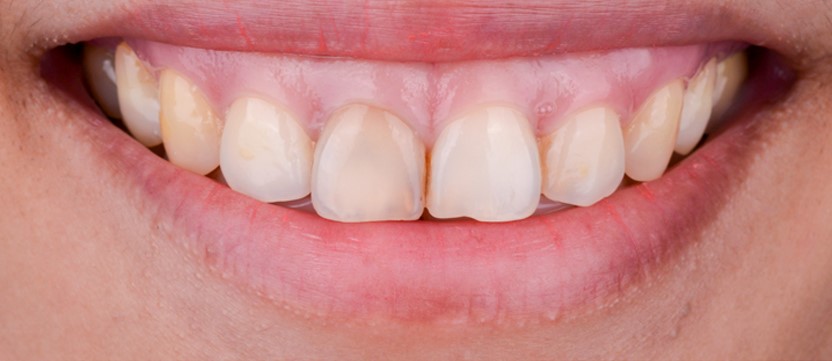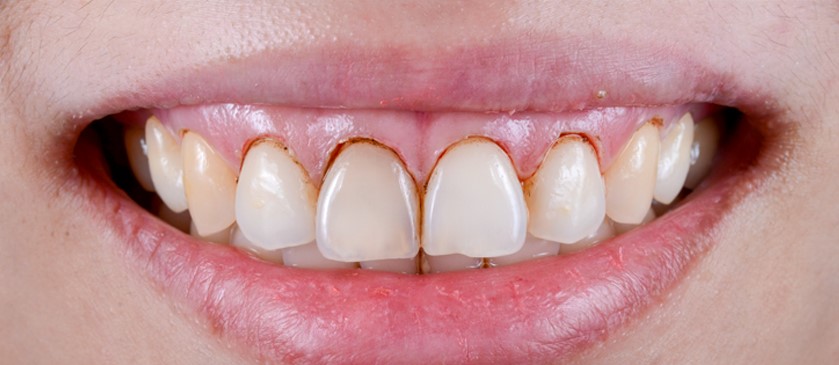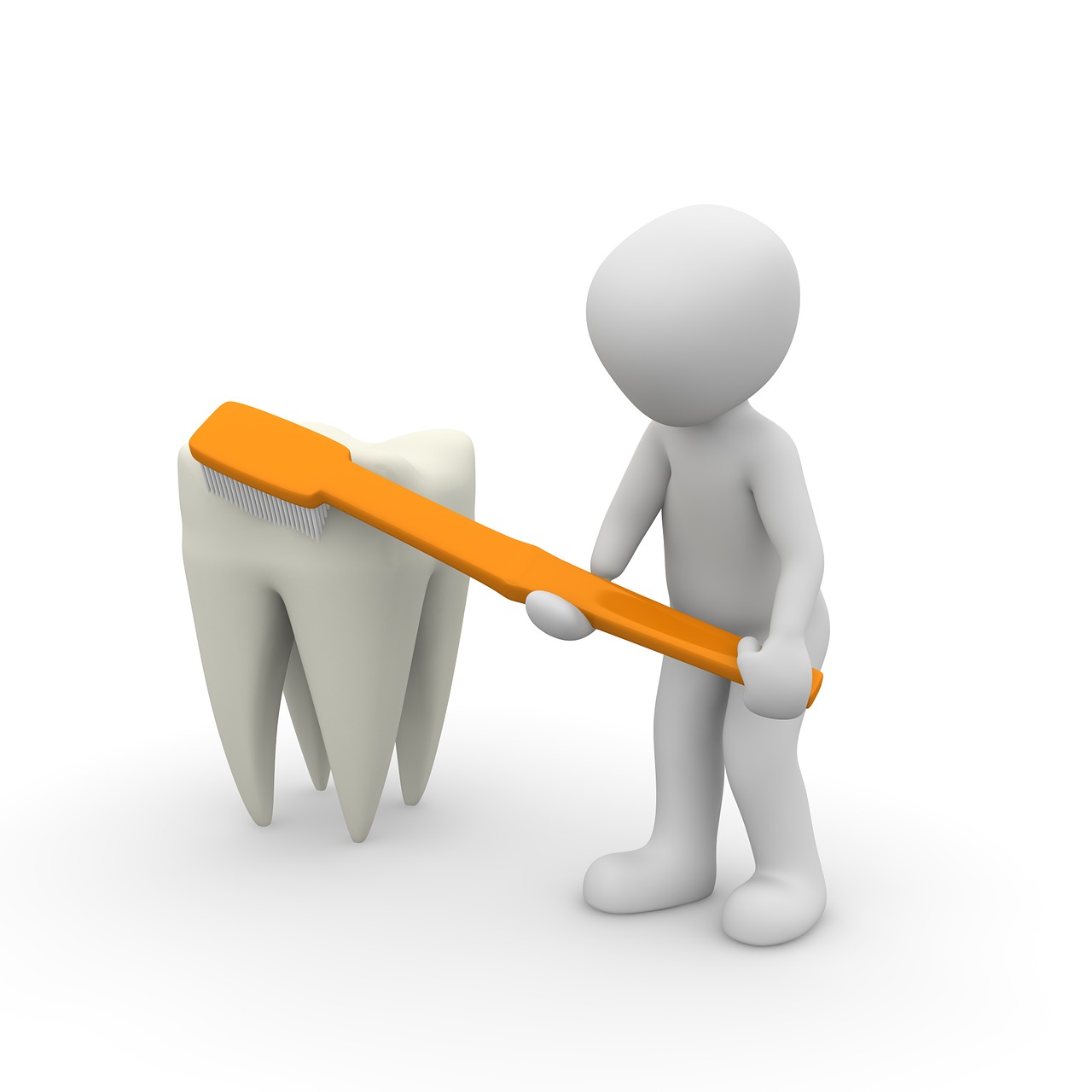
What is a Gummy Smile
- Gummy smile in terms refers to a condition when there is an excessive display of gums (gingival) while smiling. Normally 2/3rd ¾ th of the upper teeth should be visible while smiling and the rest should be covered by the upper lip. In case the gum show is more ( 2 to 3 mm) while speaking or smiling it gives an unaesthetic appearance.
- There is no consensus as to how much gingiva will display at smiling is considered gummy. a distillation of various studies shows that gums display greater than 2 millimetres academically is considered to be gummy.
What Causes a Gummy Smile
The Teeth may appear short because either they have not erupted properly and remain partially covered by gum tissue. The Teeth are small in comparison to the gums due to wear attrition or genetically small teeth.
The average length of the upper lip and the philtrum is about 20 to 24 millimetres and the average movement between a lip at rest and a lip at a smile is 6 to 8 millimetres
When the upper lip is normal in length at rest but lifts too high when smiling displaying a lot of gum tissue is called Hypermobile Lips
Gum hypertrophy or enlargement can occur due to several reasons such as hormonal changes in pregnancy or puberty, use of certain medications, gum or bony tumours arising from jawbone, which can, in turn, show up excess gum tissue.
Vertical maxillary excess can be simplified as excessive growth of the upper jaw that makes the gums bulge out. These patients usually exhibit lip incompetence (Inability to join upper and lower lip at rest) and present with a long face.
In over eruption of the maxillary anterior a gummy smile is caused by excessive vertical growth of the maxillary anterior Dental alveolar complex.
If the person has the habit of breathing from the mouth due to enlarged tonsils, adenoids, or any other breathing issues they usually present with an open mouth and inflamed gums and cause gums to show up and lead to a gummy smile
The use of certain medicines such as Phenytoin to treat epilepsy, Cyclosporine for immunosuppressant, or some anti-hypertensive drugs (Nifidipine) can lead to gum enlargement and excessive display of gums
How Do You Fix A Gummy Smile

Before

After
Treatment of Gummy Smile is based on its cause.
- Gum Surgery ( Crown Lengthening )
- Lip Lengthening
- Orthodontic Treatment
- Orthognathic Surgery
- Botox injections for upper lip
- Lip Fillers
- Treatment of Systemic Causes
Gum Surgery / Crown lengthening
Typically, the procedure that we do most of the time is what’s called crown Lengthening where we actually sculpt or reshape the gum tissue to make those teeth a little bit longer and more attractive.
At ARISE we use DENTAL LASER for Gum Contouring as it gives bloodless and precise and painless results
Sometimes the bone around the teeth needs to be reshaped as well. So we reshape the gum sometimes we reshape the bone to give the patient the look that they want and have a normal-looking smile with teeth and proportion to their face. Another advantage of gum contouring is that it eliminates the deep gum pockets and prevents recurrent gum infections. The results of gum contouring are permanent and long-lasting and the procedure is very safe.
Benefits of LASER Gum surgery.
Laser surgery is far less invasive than older methods of gum surgery. Traditional gum surgery requires medical instruments that slice into the gum tissue, leaving painful wounds that require stitches and healing time. Because the laser never cuts into your gum tissue, it offers a decreased risk of infection, sensitivity, and bleeding after the procedure. This also means the risk of complications is low. Because laser treatment is so gentle, many patients are less afraid to get their oral health problems fixed.
Gingivitis leads to gum disease when not treated in time, and gum disease leads to tooth loss if it’s never treated. Patients with advanced gum disease can save their natural teeth with this laser treatment. Gum disease leaves you with deep pockets of bacteria that regular dental cleaning can’t fix. A laser is more likely to eliminate all the harmful bacteria, even when they’re stuck in deep pockets.
Straight white teeth help you feel confident in your smile. Gums also play an important role in your self-esteem. Do your teeth feel “short,” or do you think your smile is too “gummy”? If you feel the proportion of gum tissue to teeth is unbalanced, it could make you self-conscious about your smile. Laser gum surgery contours the shape of your gums and trims the excess tissue, giving you the beautiful smile you’ve always wanted.
No healthy gum tissue is damaged during laser gum surgery. The specialists at our clinic use the laser to fix damaged tissue and stimulate new, healthy tissue growth. This method is extremely accurate and precise. The laser itself distinguishes healthy gum tissue from harmful gum tissue. Additionally, it won’t affect bones or teeth.
Traditional gum surgeries require weeks of recovery that include pain, swelling, and a liquid diet. The recovery time for laser gum surgery lasts 24 hours, and patients typically only feel mild discomfort. Because there’s no cutting or stitching involved, the laser process offers quick recovery with minimal downtime. By not using traditional surgical tools such as scalpels, your doctor removes less tissue, causing less pain, bleeding, and inflammation.
Are you ready to talk about laser gum treatment with us? Call the ARISE TEAM today. at 080- 49779863 to set up a consultation and discuss your options. You can also call us for a routine checkup.
You can expect to feel mild soreness for few days.
Post Surgical Instructions
- Not brush or floss the affected area
- Rinse your mouth and let the water or mouthwash fall out gently instead of rinsing and spitting
- Eat a soft diet
- Abstain from using nicotine products such as cigarettes
In the first 1 to 2 days, your periodontist may recommend you rinse your mouth every few hours with warm salt water to help soothe your mouth. Mix half teaspoon of salt in 250 ml of water. Make sure the water isn’t too hot or cold.
LASER surgery can decrease gum disease. However, to keep your mouth clean and free from infection, you must maintain good oral hygiene habits. These include:

